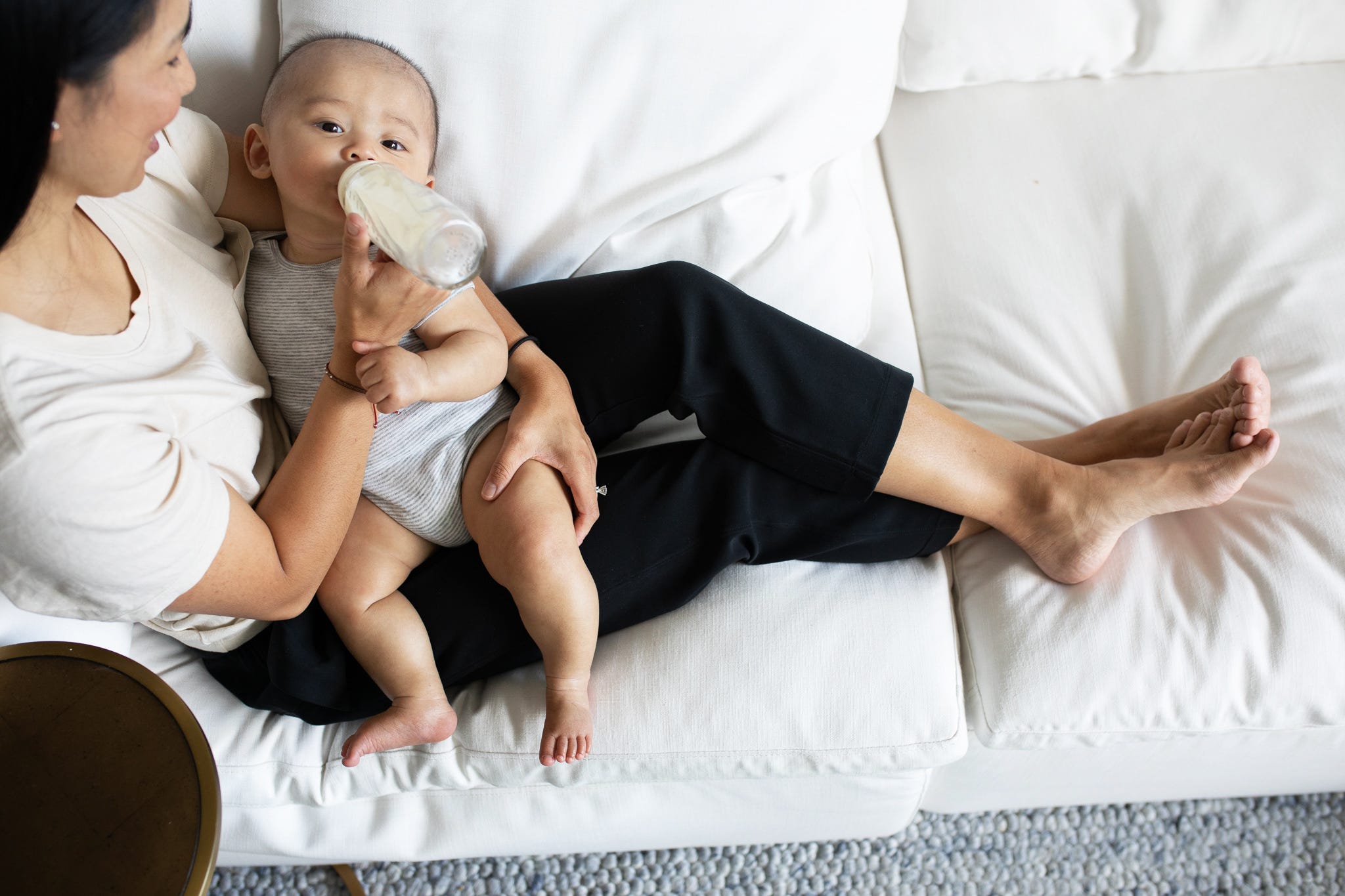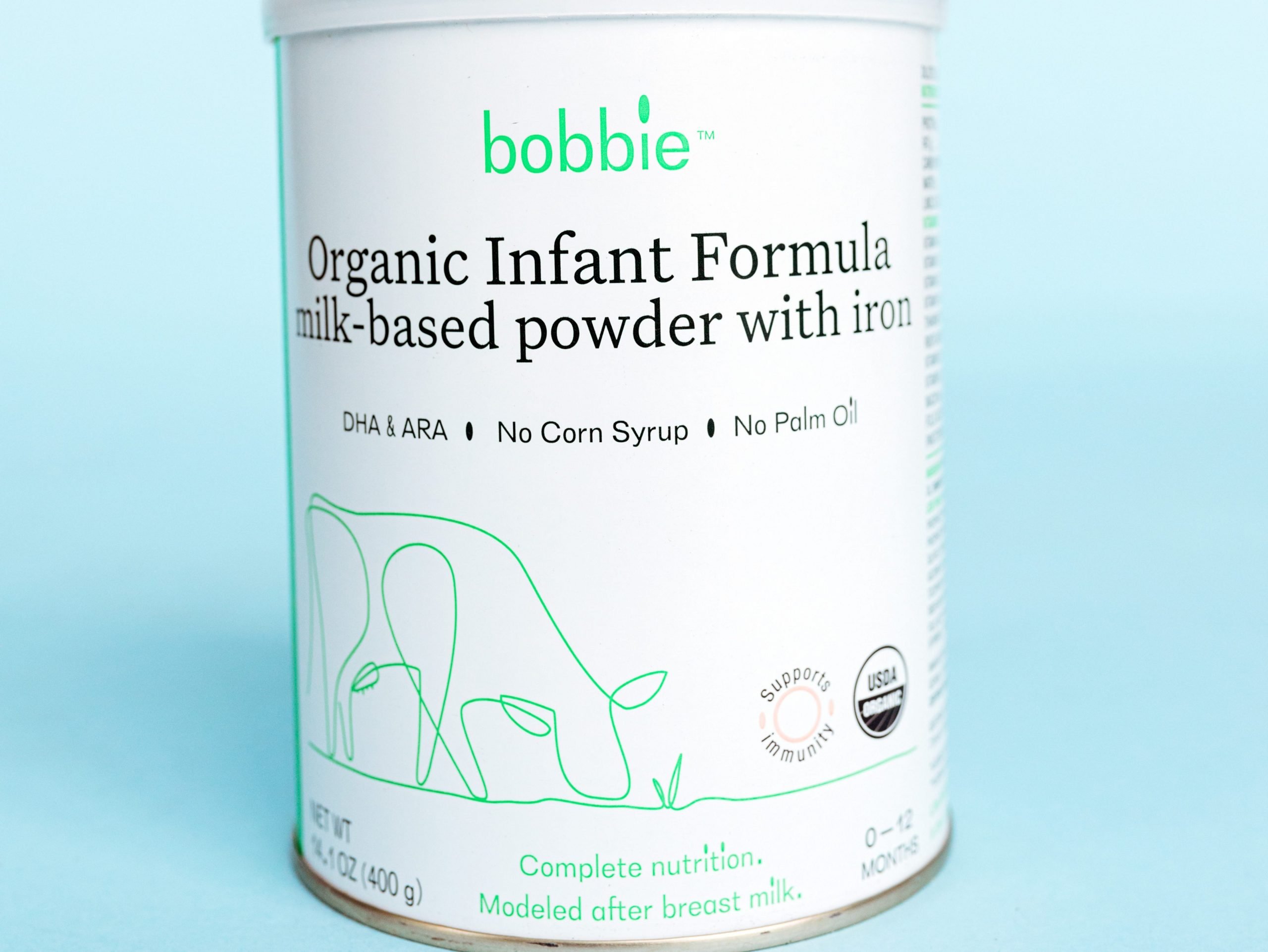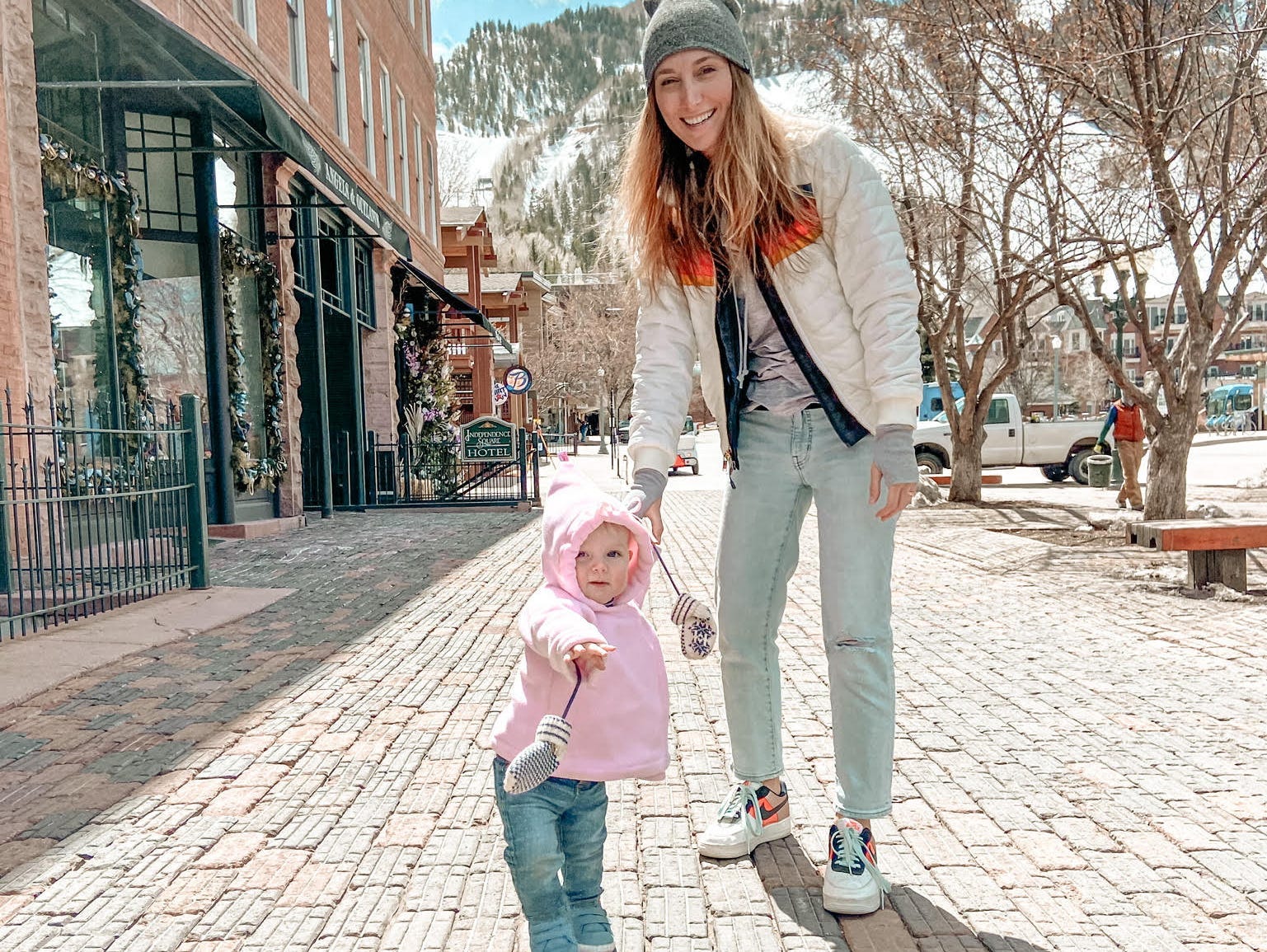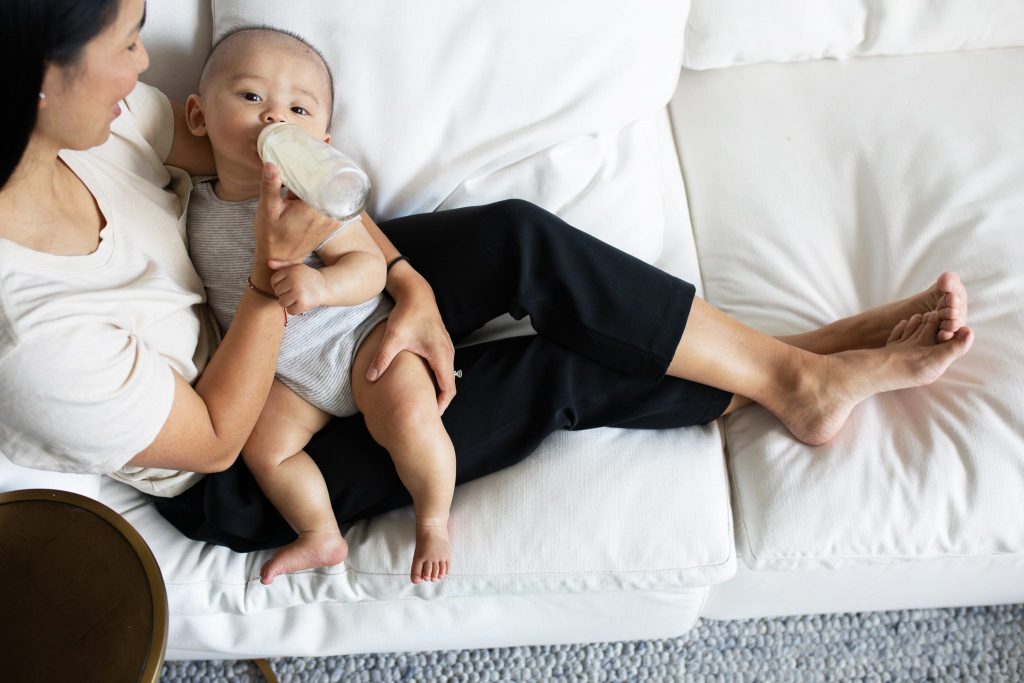
- Many US parents use illegally imported European baby formulas despite risks like contamination.
- The formulas are held to different – and, some parents think, superior – standards than US brands.
- Bobbie is the first European-style formula with FDA approval, and demand outpaced supply.
- Visit Insider's homepage for more stories.
Amy Moran went to bed one night as a mom who exclusively breastfed her baby, and woke up the next day to a seven-and-a-half-month-old who'd decided to go on a nursing strike.
"I was heartbroken," Moran, a therapist in the Chicago area whose daughter is now one, told Insider. Not only did she have to ride the hormonal waves of weaning, but she also had to navigate the infant formula market to supplement her pumping – and the stigma that comes with doing so.
Through online research, it quickly became clear to Moran, a first-time mom, that European formulas sold through a black market were superior to any she could find in the US because they were organic, had few additives, and were held to a different standard. The brand she settled on even came recommended by breastfeeding counselors, Moran said.
And yet, she felt "a little too sketchy" about using an illegally-imported formula not authorized by the FDA, she said. She wanted her pediatrician to approve of her choice and to trust that if there was a recall, she would know about it.
When Moran saw an ad for Bobbie, the first European-style formula approved by the FDA, she switched. "It gave me this huge relief," she said. The brand, which just launched in January by two moms, meets most EU nutritional standards and leaves out common ingredients in American formulas like corn syrup.
Experts have warned against using illegally imported formulas, and are encouraged Bobbie will give parents more options. But they say it's important for people to understand American formulas aren't necessarily inferior or unsafe.

Some parents are drawn to European formulas because they seem more up-to-date
It's unclear how many parents use third-party vendors to acquire European formula, but one survey including 552 parents in a New York City pediatrics practice put the numbers at one in five. The most popular are the German brands HiPP and Holle.
Lisa Richardson, a pediatric dietitian and creator of Formula Sense, said the parents she's talked to who go this route cite "personal concerns about the integrity and wholesomeness of US infant formulas," but often those concerns are based on misconceptions.
Bobbie cofounder Laura Modi, who's Irish but working and raising three children in the US, told Insider the European brands are appealing in part because the EU updates its standards for infant formula every three or four years, while the US is still leaning on the Infant Formula Act of 1980.
That doesn't mean nothing has changed in American formulas in 41 years. The 1980 act "created excellent consumer protections and mechanisms to include the latest nutritional science," Richardson said.
As pediatrician Dr. Kelly Fradin previously told Insider for a story about new lab-grown "breast milk," American formula is "safe, relatively affordable, thoughtfully designed, rigorously tested, and continually improving."
American parents may go with European formulas because of the ingredients
DHA, a fatty acid in breast milk that's critical in the development of a baby's brain, nervous system, and eyes, is required in high amounts in European formulas. Only some US brands include DHA, and none at the level that would meet EU standards, Modi said.
While most US companies use conventional dairy, brands overseas are more apt to use pasture-raised milk. European formulas also place limits on corn syrup, whereas in the US, Modi said, "you're allowed to make up 100% of your carbs from corn syrup."
Still, not all European brands are corn syrup-free. It's a common misconception, Richardson said. European regulators allow sucrose, dried glucose syrup (another name for corn syrup solids), and maltodextrin.
Buying through third party vendors lacks transparency and comes with other risks
Regardless of how superior European brands really are, purchasing through a third party is risky.
Some European baby formulas don't use English ingredient labels or American units, creating an opening for a dangerous mixing miscalculation, Dr. Anthony Porto, a Yale pediatric gastroenterologist and member of Bobbie's medical affairs team, told Insider. US parents also won't necessarily know if a product has been recalled.
Most significantly, though, is the lack of transparency.
Are the formulas being put in someone's luggage? Shipped on cargo? These things matter in part because formula shouldn't get too hot or cold, and the products can get contaminated, Porto, author of "Pediatrician's Guide to Feeding Babies and Toddlers," said.

Courtesy of Amy Moran
He said Bobbie is promising not because American formulas aren't safe, but because it's "pushing the envelope" in the US industry in a way that could prompt more up-to-date data on what's really best for feeding babies. For example, while US brands add ingredients like taurine to mimic breast milk, we don't actually know if the benefits outweigh the risks. (Bobbie does not include taurine.)
When it comes to DHA, the doses aren't regulated at all - US companies have anywhere from 0 milligrams per 100 calories to Bobbie's 20, the minimum requirement in the UK.
"I'm hopeful that by starting off with this new standard, we're able to build on it so that we can learn and hopefully this becomes a standard for all children and not just the ones whose parents are reading about this," Porto said.
At one point, the waitlist for Bobbie grew to 7,000 people
When Modi had her first child, her expectations that breastfeeding would be "easy and beautiful" imploded. As the director of hospitality at Airbnb at the time, there was no way to lead a growing tech company while pumping constantly, and yet American culture insisted she do both seamlessly.
Turning to formula felt shameful. Moms in the US "were all doing it," Modi said, "but behind closed doors and feeling extremely guilty about it." One 2019 survey found 83% of moms use formula in the first year of their baby's life.
In Ireland, meanwhile, Modi watched friends and relatives breastfeed some, use formula some, and discuss which brands they were using openly - with no stigma attached.

Bobbie
She ended up going through the black market to give her baby formula from overseas, while developing her plan to create something comparable in the US. It wasn't easy.
Infant formula production is held to strict quality standards, and the FDA approval process takes years. In fact, no new formulas besides Bobbie have entered the market in the past five years, Forbes reported.
A lot of the barrier is money. "If you don't have the capital, and you don't get support, you are not breaking into this market," Modi said.
But Modi and her cofounder Sarah Hardy, a fellow former Airbnb employee, raised more than $6 million and launched a pilot program in 2019. Then, just a few days in, the FDA issued a warning against Bobbie, in part because it didn't meet some US nutritional requirements for infants.
The company has bounced back. After working with the FDA and finding a new manufacturer and another investor, it launched in January. In the first quarter, demand exceeded supply, with a waitlist of parents that at one point grew to 7,000.
"The biggest thing we're learning from parents is, 'The baby's s--t is amazing," Modi said. "The product they're putting in their babies is coming out very well."

